Founder Q&A with Manuela Zoninsein the CEO and Co-founder of Kadeya
May 17, 2023
As a serial entrepreneur with a passion for environmental impact, Manuela decided to apply for the Techstars Farm to Fork program in 2022. After spending time in New York City, she started to explore the idea of water bottles being shared like Citi Bikes. Kadeya came to Techstars with the goal to grow and scale the business and bring their closed-looped vending machines everywhere.
Q: What value did you get out of the Farm to Fork Program?
A: Techstars Farm to Fork exceeded my expectations in many ways, but if I have to pick one then it’s the way the managing team deeply understood and was fundamentally savvy regarding what it is that investors look for when choosing to make an investment. Brett and Sarah taught me how to run a fundraising process, opened their vast Rolodexes to make introductions, and workshopped my pitch and slides til they reached the highest standards.
Q: What advice would you give a founder who is on the fence about the Farm to Fork program?
A: DO IT. Prior to accepting the offer, I spent a lot of time talking to people in my network - entrepreneurs, customers, talent, and of course investors - and was really conflicted about the equity that Techstars takes and whether the juice was worth the squeeze, so to speak. I can say without hesitation, YES, this program is absolutely worth the equity, as well as your time, energy, and attention. I have no regrets. Kadeya would not be where we are today without Farm to Fork.
Q: How was mentorship impactful to you and your company
A: The mentors Kadeya was connected to via Farm to Fork were committed to understanding our business and providing rapid, regular suggestions. I keep in touch with two of the three lead mentors to this day. Beyond the lead mentors, we gained access to the broader Farm to Fork network which continues to pay dividends today, in ways big and small.
Q: In which ways was Ecolab able to make an impact on your business?
A: When participating in the Farm to Fork accelerator, plan to be asked a lot of tough, important questions. Ecolab certainly contributed its fair share! Kadeya went from having some well-researched but rudimentary theories of how our business would work, to being prepared to present to the foremost experts in several overlapping fields.
As a serial climate entrepreneur, I’ve come to think of building a startup not as building a company, but as building an iteration engine. The best thing a founder can do is surround herself with smarter, more experienced, and deeply generous people who can hold up mirrors from as many angles as possible so you can start seeing your own blind spots. This exercise forces founders to get good at processing feedback and iterating against that to build and test solutions even faster.
I’m grateful to Ecolab for not holding back on throwing tough questions and even some curve balls my way. Perhaps more importantly, I appreciate that they didn’t treat me with kid gloves and had confidence in my ability to figure out the solutions.
Q: How have you seen the impacts of Techstars even after the program has ended?
A: While I can’t comment on the broader Techstars community, the specific Farm to Fork program multiplied access points to additional customers, investors, partners, and talent. I’m simultaneously impressed and intimidated by my cohort colleagues who inspire me daily. They also support me, so I don’t feel like I’m out there doing this alone.
Manuela and Kadeya were part of the 2022 Techstars Farm to Fork class. Since the program, Kadeya was recently named a World Changing Idea by Fast Company. More information about Kadeya can be found here.

